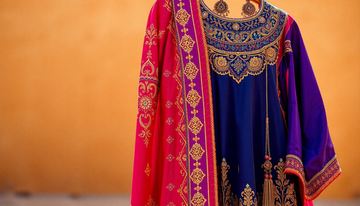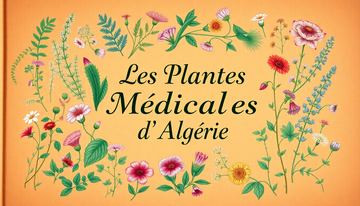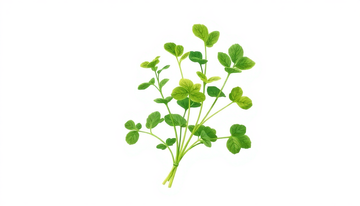Algeria is a land rich in traditions, and nowhere is this better manifested than in its clothing heritage. Iconic garments like the Karakou, Gandoura, and Burnous are not only masterpieces of craftsmanship but also true symbols of Algerian identity. Let's delve into the fascinating world of these textile treasures.
The Algerian Karakou: Timeless Elegance
The Karakou is undoubtedly one of the most emblematic garments of Algeria. Its origins date back to the Ottoman era, when Turkish fashion influences blended with local traditions. This feminine caftan is distinguished by its elegant cut, sumptuous embroidery, and vibrant colors. Each region of Algeria has developed its interpretation of the Karakou, reflecting the country's cultural diversity.
Whether for a wedding, a traditional ceremony, or a simple outing, the Karakou remains a wardrobe staple for Algerian women. Its wear is often associated with a sense of pride and respect for one’s roots. Algerian women wear this garment with grace and elegance, making it a true standard-bearer of their heritage.
The Algerian Gandoura: Versatile and Refined Attire
The Gandoura is another jewel of the traditional Algerian wardrobe. A long feminine tunic, it comes in various styles and materials, ranging from embroidered satin to beaded velvet. Some Gandouras are even adorned with geometric or floral patterns, showcasing the incredible craftsmanship of local artisans.
Unlike the Karakou, the Gandoura can be worn on numerous occasions, from everyday life to the most solemn ceremonies. It easily adapts to different contexts, reflecting the versatility of this iconic garment.
Whether for a family outing, a visit to relatives, or an evening with friends, the Algerian Gandoura brings a touch of elegance and refinement to any outfit. It perfectly embodies the essence of traditional Algerian fashion.
The Algerian Burnous: A Cloak Steeped in History
The Burnous is undoubtedly one of Algeria’s most iconic garments. Originating from the mountainous regions of the country, this hooded cloak has long been worn by men as protection against the elements. But beyond its practical function, the Burnous holds deep cultural and historical significance.
In the past, wearing the Burnous was closely linked to tribal identity and the social status of its wearer. Today, this traditional garment has adapted to fashion trends while retaining its aura of nobility and distinction.
Whether in its classic wool version or its more contemporary adaptations, the Algerian Burnous remains a staple of the country’s clothing heritage. It embodies the strength, dignity, and pride of a people proud of their roots.
Other Important Traditional Garments
Beyond the Karakou, Gandoura, and Burnous, Algeria boasts numerous other fascinating traditional garments. These include the Haïk, a long veil worn by women, and the Algerian Caftan, a ceremonial dress with sumptuous embroidery.
We must also mention the Djabadouli, an elegant male tunic, and the Seroual Chelqa, a typical baggy trouser from certain regions of the country.
Each of these garments carries a unique story, tradition, and identity, attesting to Algeria’s rich cultural heritage.
Accessories and Ornaments: Touches of Refinement
Traditional Algerian clothing would not be complete without its characteristic accessories and ornaments. The "Mdmamma" belt and "Mechta" scarf are essential elements, adding a touch of refinement to any outfit.
Kabyle jewelry and Berber adornments are true masterpieces of local craftsmanship. Necklaces, earrings, bracelets, and rings are unique pieces reflecting the creativity and expertise of Algerian artisans.
Finally, traditional slippers, with their rounded shapes and colorful patterns, elegantly complete the ensemble.
Artisanal Techniques: Treasures of Expertise
The making of traditional Algerian garments is a true art, showcasing a wealth of artisanal techniques. Gold thread embroidery, beading, and gold ornaments are details that give these pieces a unique and precious dimension.
Working with velvet, satin, and beaded muslin also attests to the incredible skill of local artisans. Every stitch, embroidered motif, and applied bead is the result of ancestral know-how passed down through generations.
These artisanal techniques are not only technical feats but also true artistic expressions, reflecting the creativity and sensitivity of Algerian artisans.
Traditional Clothing in Ceremonies
Traditional Algerian garments take on great importance during life’s major ceremonies and events. Whether for a wedding, engagement, or other traditions, these outfits hold deep symbolic and emotional significance.
The bride's preparation, for example, is a fascinating ritual where traditional clothing plays a central role. From the wedding dress to jewelry and accessories, every element is carefully chosen to reflect the bride’s cultural identity.
Engagement and dowry traditions are also opportunities to highlight Algeria's clothing heritage. Gift exchanges, ceremonies, and festivities are moments when these emblematic garments take on their full dimension.
Evolution and Modernization: Preserving Traditions
While deeply rooted in Algerian culture, traditional garments have adapted to the evolution of fashion and society. Ottoman influence, for example, has left an indelible mark on the styles and motifs of Algerian attire.
Today, there is a true renaissance of these clothing traditions. Algerian fashion designers draw inspiration from ancestral styles to reinvent them with a contemporary touch, thereby preserving and showcasing this unique heritage.
Whether on fashion runways, cultural events, or in daily life, traditional Algerian garments continue to shine, attesting to the importance of these textile treasures for the country's identity.
Conclusion: Perpetuating Clothing Traditions
Traditional Algerian garments are much more than mere pieces of fabric. They are the guardians of a history, culture, and identity deeply rooted in the heart of the Algerian people. From the Karakou to the Gandoura, to the Burnous, these clothing treasures are living symbols of a rich and diverse heritage.
By perpetuating these traditions, adapting them to modernity while preserving their essence, Algeria affirms its pride and attachment to its roots. These iconic garments are not only masterpieces of craftsmanship but also true ambassadors of Algerian culture around the world.
As trends evolve and fashions change, traditional Algerian garments remain timeless, testifying to the strength and longevity of a unique and fascinating identity.






